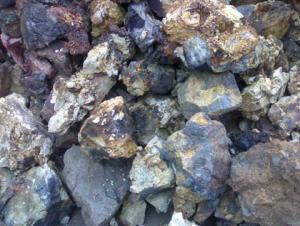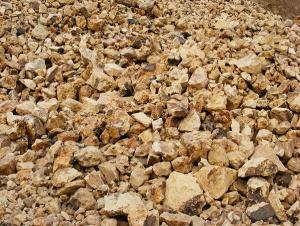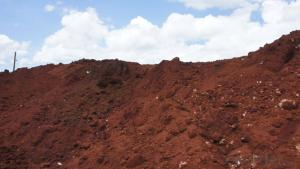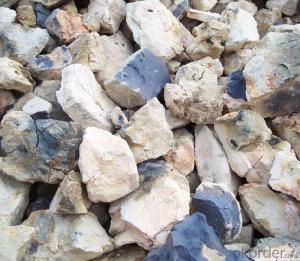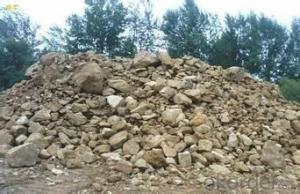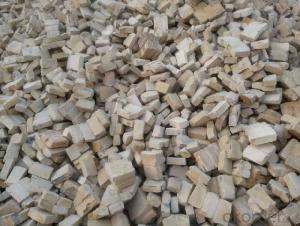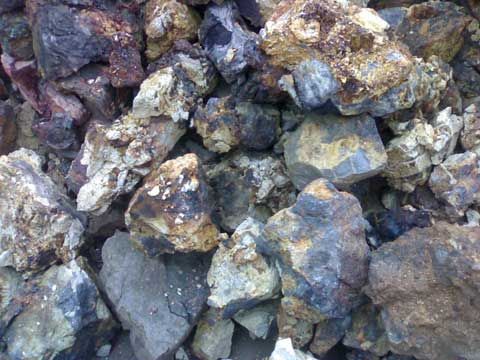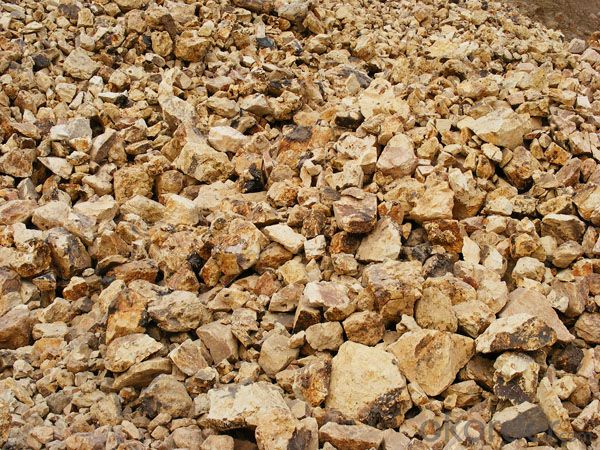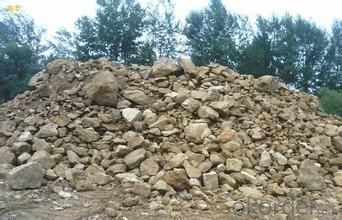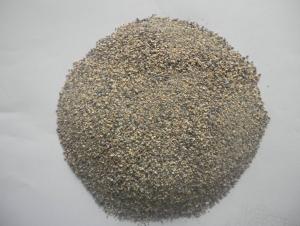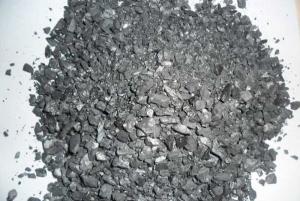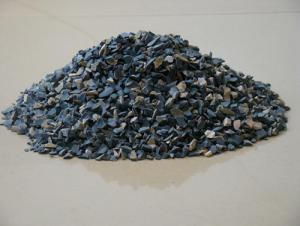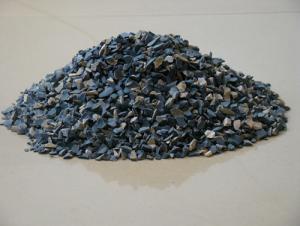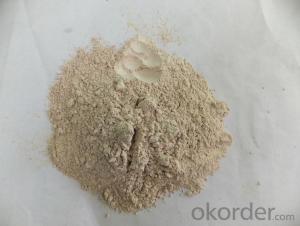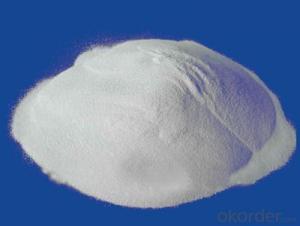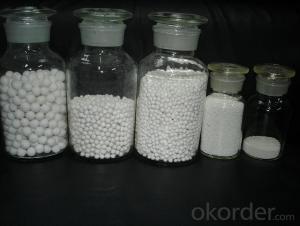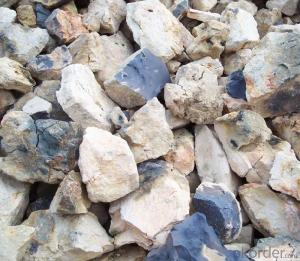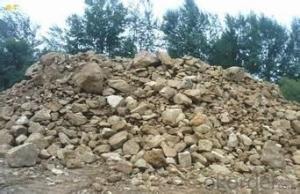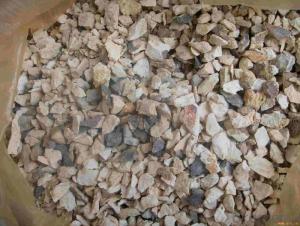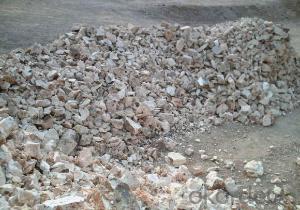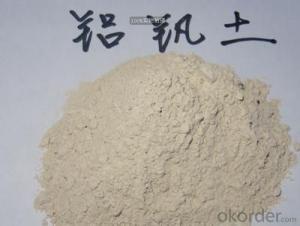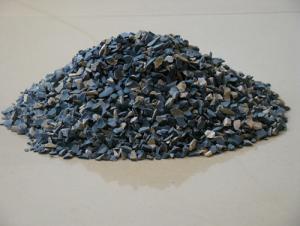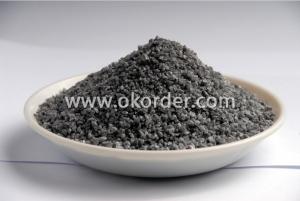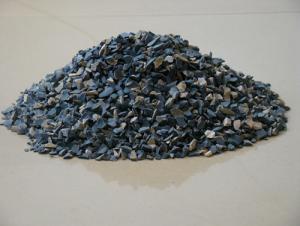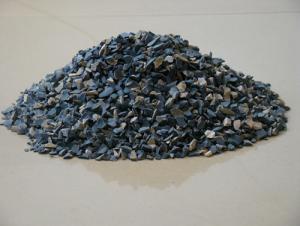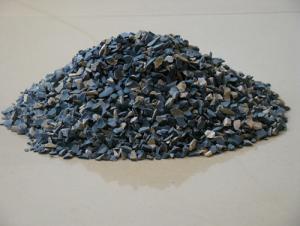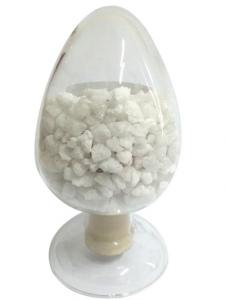ISO Certified Alumina Bauxite Raw Materials for Refractory - Fine Dust of CNBM in China
- Loading Port:
- Tianjin
- Payment Terms:
- TT OR LC
- Min Order Qty:
- 1 m.t.
- Supply Capability:
- 10000000 m.t./month
OKorder Service Pledge
OKorder Financial Service
You Might Also Like
1.Structure of Calcined Bauxite Description
Bauxite (aluminous soil; Bauxite) is also called the alumina or bauxite, main ingredients are alumina, hydrated alumina containing impurities, is an earthy mineral. White or gray, brown and yellow or light red by iron. From 4 to 3.9 g/cm3 density, hardness, 1 ~ 3 is not transparent, very brittle. Very difficult to melt. Insoluble in water, soluble in sulfuric acid, sodium hydroxide solution. Mainly used for aluminium, refractory material.
2.Main Features of the Calcined Bauxite
Calcined bauxite is one of the principal ore of aluminum. Calcined bauxite contains hydrous aluminum oxides and aluminum
hydroxides, formed through the laterization of aluminous rocks in tropical and subtropical areas .Calcined bauxite is obtained by calcining (heating)superior grade bauxite at high temperature (from 85OC to 1600C) .This removes moisture there. By increasing the alumina content,compared to an alumina content of about 57%to 58% in raw bauxite, calcined bauxite has an alumina content of 84%to88%.The heating is carried out in rotary kilns.
3. Calcined Bauxite Images
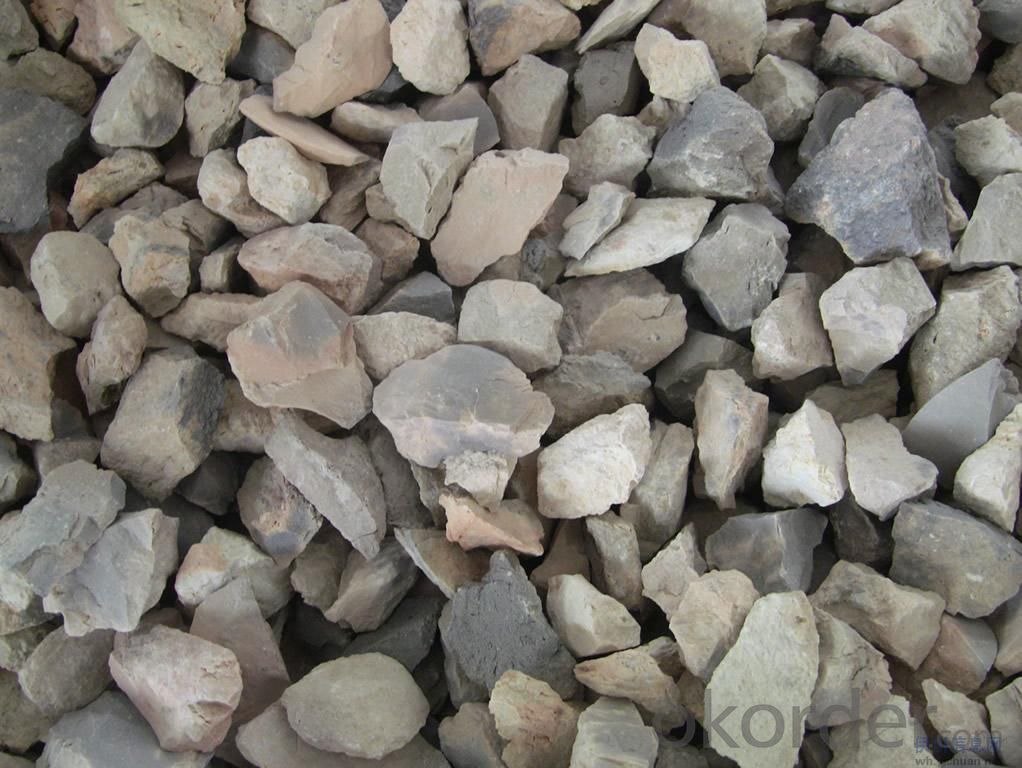
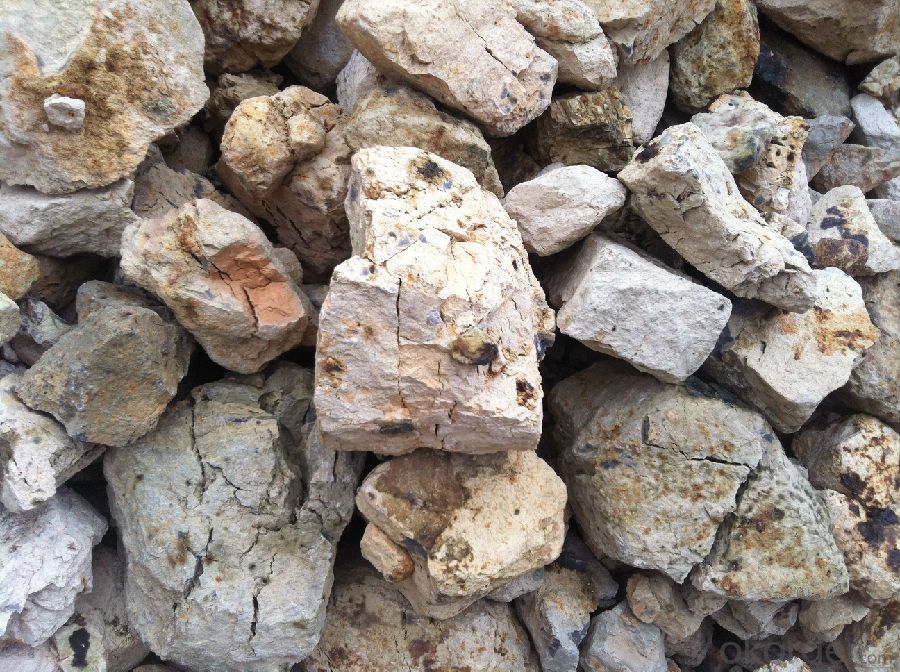
4. Calcined Bauxite Specification
items | Chemical composition % | Water absorption % | Bulkdensity g/cm3 | |||
Al2O3 | Fe2O3 | CaO+MgO | R2O | |||
Special grade ONE | ≥85 | ≤1.8 | ≤0.4 | ≤0.4 | ≤3 | ≥3.10 |
Special grade TWO | ≥80 | ≤2.0 | ≤0.5 | ≤0.5 | ≤5 | ≥2.90 |
Grade ONE | 70-80 | ≤2.0 | ≤0.6 | ≤0.6 | ≤5 | ≥2.75 |
Grade TWO | 60-70 | ≤2.0 | ≤0.6 | ≤0.6 | ≤6 | ≥2.65 |
particle size
name | Particle size | limit |
High alumina bauxite | 10~5mm | >10,<5 less than 10% |
High alumina bauxite | 5~3mm | >5,<3 less than 10% |
High alumina bauxite | 3~1mm | >3,<1 less than 10% |
High alumina bauxite | 1~0mm | <1 less than 10% |
High alumina fine dust | 0.08mm | Screen residue less than 10% |
High alumina fine dust | 0.045mm | Screen residue less than 10% |
5.FAQ of Calcined Bauxite
1). Q: Are you a factory or trading company?
A: We are a factory.
2). Q: Where is your factory located? How can I visit there?
A: Our factory is located in ShanXi, HeNan, China. You are warmly welcomed to visit us!
3). Q: How can I get some samples?
A: Please connect me for samples
4). Q: Can the price be cheaper?
A: Of course, you will be offered a good discount for big amount.
- Q: What are the fire endurance requirements of class A fire resistant door ?
- The fire endurance of class A fire resistance door is 1.5H, but also depends on the product quality. The filling material of class A, B, C fire doors is the same, new fireproofing material-- perlite. The difference is their thickness. The general structure is: surface panel, fireproof?board framework (filled with perlite) fireproof?board panel. !
- Q: How many kinds of fireproof materials are there in the market?
- I wonder that how many kinds of fireproof materials are there? Does anyone know about it, please tell me, thanks
- Q: Who knows what is the standard of insulation material whose fire proof is level A?
- Level A is distinct from B in coefficient of fire proofing. Level A is non combustible, while Level B is divided into B1( flame retardant), B2(combustible) and B3( inflammable). Currently in the market, level A materials are as follows: phenolic, rock wool, insulation mortar, ceramic foam, foam glass, and foamed concrete. The most advantageous of level A material at present is foamed concrete, also known as foamed cement. Xuzhou Lvchuang Construction company is working on this, you can search fro it on the internet, it has high cost performance.
- Q: How to choose thermal insulation materials for flood heating?
- By controlling the foaming ratio, nucleating agent size, moudle pressure, temperature of screw, vacuum foaming technology, extruded sheet of different density can be made. The density of commonly used plastic extruded board is 25-50 kg per cubic meter. Plate density is the main factor affecting the cost of the extruded plate. The higher the plate density, the higher the cost price. Plate density is the main factor affecting the cost of the extruded plate. The lower the density of extruded board, the worse quality performance. Plate density of common plastic extruded is between 30 to 38 kilograms per cubic meter. The density of plastic extruded plate of exterior wall is between 30-35, if the density is too low, then the plate will not be strong enough, if high, flexibility of plastic extruded board will be inadequent, unable to bear the stress brought by housing settlement deformation, resulting in cracks in the wall. With the extrusion plate for floor heating should be in 36 kilograms per cubic meter. If it is too low, ground subsidence will occur due to the low strength, resulting in the ground crack. If density is too high, the thermal conductivity coefficient will increases, impacting energy saving. High density extruded plate is generally used for occasions having special requirements for compressive. Parking lot roof should use extruded plate above X350, whose density is 40 kg per cubic meter. The aircraft need to use the Ping extruded board above X500, density in 45 kilograms per cubic meters. High speed railway subgrade need to use extruded plastic board above 700KPA,
- Q: how to divided the external wall thermal insulation materials fire rating
- Level A: Incombustible building material is a material that does not occur any burning. Level A1: Noncombustible means no open fire. Level A2 It is noncombustible, and should measure smoke to be qualified. Level B1: Nonflammable building material: Non-flame material has good flame resistance. It is difficult to fire under the condition of open fire in the air or high temperature, and it is not easy to quickly spread, and when the combustion?source is removed, the combustion will stop immediately. Level B2: Combustible?building?materials: Flame material has a good flame resistance. In case of fire in the air or at high temperature, it will immediately burst into flames, and easily lead to the spread of fire, such as wooden column, timber roof truss, timber beam and wooden stairs. Level B3: inflammable building material has no any flame resisting effects, and is easy to burn, so the fire risk is high.
- Q: How is the fire endurance of the fireproof paint?
- second level firerpoof of cooling rack. with a fire endurance from 1 to 1.5 hours. According to the code for fire protection design of buildings. 1. fireproof grading of first level is 1.5 hours 2, fireproof grading of second level is 1.0hour.
- Q: What substitutes are available for high-end refractories in addition to zircon sand?
- If you want to use environmentally friendly products, please use recycled Mo powder.
- Q: What are the new types of refractories? What are the characteristics? Their applications and developments?
- Special materials often use AZS brick, corundum brick, magnesia chrome brick, silicon carbide, silicon nitride bonded silicon carbide, nitrides, silicides, sulfide, boride, carbide and other non oxide refractory materials; calcium oxide, chromium oxide, alumina, Magnesium Oxide, beryllium and other refractory materials. Often used insulation refractories are diatomite products, asbestos products, insulation panels and so on. Unshaped refractory materials commonly used are fettling, refractory ramming material, refractory castable, refractory plastic material, refractory clay, refractory gunning, refractory cast material, fireproof coating, lightweight castable, mud etc..
- Q: What kinds of fireproof materials does the safe use?
- The fireproof materials of the safe, cement foam. It is often said recently that the safes with cement inside are bad. Actually, it is not like this. Chemical means are taken to make the cement inside safes rise like a leaven dough so as to achieve good insulation. The principle is the cement foam. Fireproof safes with such techniques have good performance in terms of fireproofing and anti-theft. The manufacturing processes of this fireproof safe are highly technical, some safes with poor techniques have problems in quality. Here are some data of the foam cement.
- Q: What are the new refractories?
- Silicon carbide kiln furniture and mullite cordierite kiln furniture. Jing Cheng Refractories Plant in Yanshi City 0379-62222036
Send your message to us
ISO Certified Alumina Bauxite Raw Materials for Refractory - Fine Dust of CNBM in China
- Loading Port:
- Tianjin
- Payment Terms:
- TT OR LC
- Min Order Qty:
- 1 m.t.
- Supply Capability:
- 10000000 m.t./month
OKorder Service Pledge
OKorder Financial Service
Similar products
Hot products
Hot Searches
Related keywords
